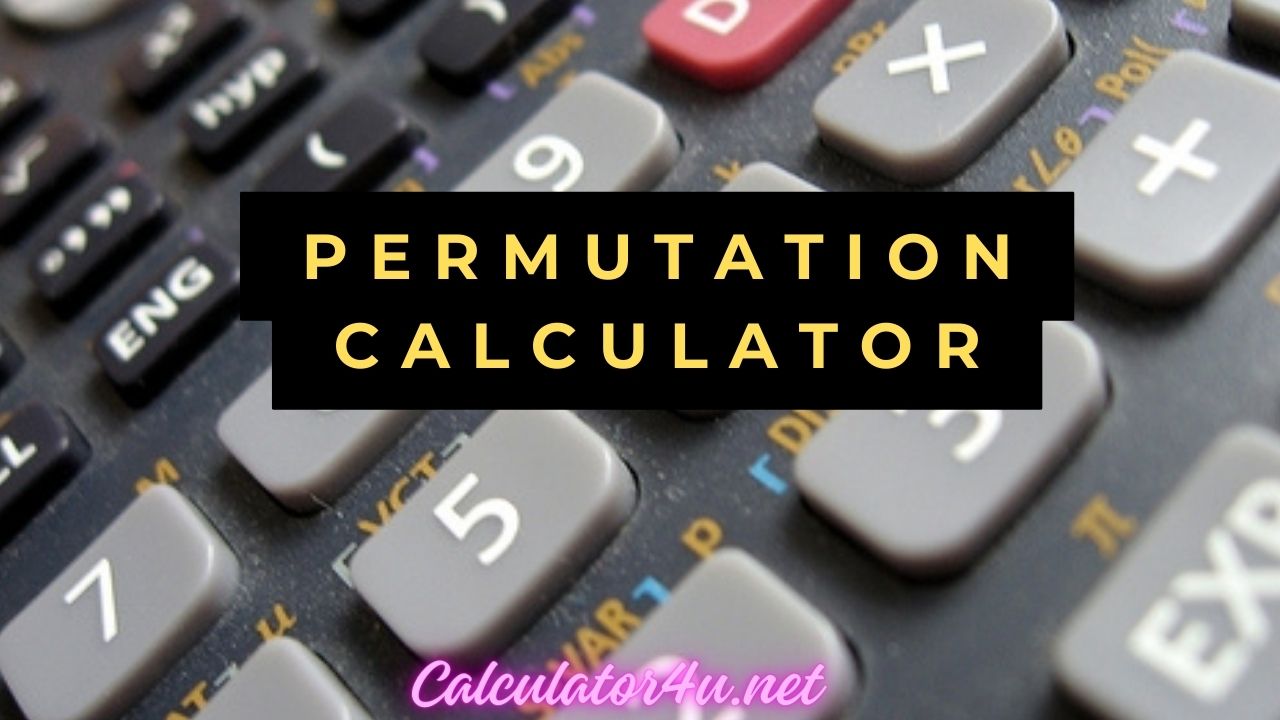Permutation Calculator
- Perimeter Of Regular N Polygon Calculator
- Perimeter Of An Ellipse Calculator
- Perimeter Of A Trapezoid Calculator
- Perimeter Of A Rhombus Calculator
Permutation Calculator with Steps
Permutation Calculator with Repetition
Permutation Calculator without Repetition
Discover how to compute permutations effortlessly with our calculator. Learn to input the number of items and the selection size to understand the results. Simplify your permutation calculations now!
Table of Contents
Permutation Calculator
Welcome to our Permutation Calculator guide. Permutation is a fundamental concept in combinatorial mathematics, representing the number of ways to arrange a set of items. In this article, we’ll guide you on how to use the Permutation Calculator to compute permutations with ease.
Permutation Calculator Overview
What is the Permutation?
Permutation refers to the arrangement of objects or symbols in a specific order. The number of permutations P of n items taken r at a time is calculated using the formula P(n,r)=(n−r)!n!, where n! denotes factorial of n.
Importance of Calculating Permutation
Understanding permutations is crucial in various fields, including:
- Combinatorial Mathematics: Studying arrangements and selections in discrete structures.
- Probability Theory: Analyzing outcomes and events in random experiments.
- Computer Science: Optimizing algorithms and data structures for efficient operations.
How the Permutation Calculator Works
Our Permutation Calculator allows you to input the number of items n and the selection size r. The calculator will then automatically compute the number of permutations using the formula P(n,r)=(n−r)!n!.
A permutation is an arrangement of objects in a specific order. The number of permutations of n objects taken r at a time can be calculated using the formula: P(n,r)=(n−r)!n!
Where:
- n! (n factorial) is the product of all positive integers up to n.
- (n−r)! is the product of all positive integers up to n−r.
How to Use the Permutation Calculator
- Enter the total number of objects (n) in the “Total Objects (n)” field.
- Enter the number of objects to be selected (r) in the “Selected Objects (r)” field.
- Click on the “Calculate” button to find the number of permutations using the formula P(n,r)=(n−r)!n!.
Calculator
Total Objects (n): [] (Enter n here)
Selected Objects (r): [] (Enter r here)
[Calculate]
Example
Let’s say we have 5 different objects and we want to arrange them 3 at a time.
Using the formula:
P(5,3)=(5−3)!5!
P(5,3)=2!5!
P(5,3)=2×15×4×3×2×1
P(5,3)=2120
P(5,3)=60
So, there are 60 different ways to arrange 5 objects taken 3 at a time.
Step-by-Step Guide to Using the Permutation Calculator
- Enter Number of Items: Input the number of items n into the designated field.
- Enter Selection Size: Input the selection size r into the designated field.
- Compute Permutations: Click the “Calculate” button to initiate the permutation calculation.
- Review Result: Examine the computed permutation value displayed by the calculator.
Practical Applications
Calculating permutations has practical applications in various scenarios, such as:
- Cryptography: Generating unique keys and codes for secure communications.
- Genetics: Understanding genetic variations and combinations in biological sequences.
- Finance: Analyzing investment strategies and portfolio optimization.
Advantages of Using the Permutation Calculator
- Accuracy: Provides precise permutation values based on the input number of items and selection size.
- Efficiency: Saves time and effort by automating the process of calculating permutations.
- Versatility: Can handle various number of items and selection size values, making it applicable to different permutation scenarios.
FAQs
Q: What is a permutation?
A: Permutation refers to the arrangement of objects or symbols in a specific order.
Q: How is the number of permutations calculated?
A: The number of permutations P(n,r) of n items taken r at a time is calculated using the formula P(n,r)=(n−r)!n!.
Q: What is factorial?
A: Factorial of a non-negative integer n, denoted by n!, is the product of all positive integers up to n.
Q: Can permutations be repeated?
A: In permutations, each item can be used only once in a specific arrangement, making repetition of items not allowed.
Q: How do permutations differ from combinations?
A: Permutations involve arranging items in a specific order, while combinations focus on selecting items without considering the order.
How do you calculate permutations?
The number of permutations of n objects taken r at a time can be calculated using the formula
!P(n,r)=(n−r)!n!.
Conclusion
In conclusion, the Permutation Calculator offers a convenient and efficient solution for calculating permutations. By following the steps outlined in this guide and utilizing the calculator’s features, you can easily compute the number of permutations for various scenarios.

